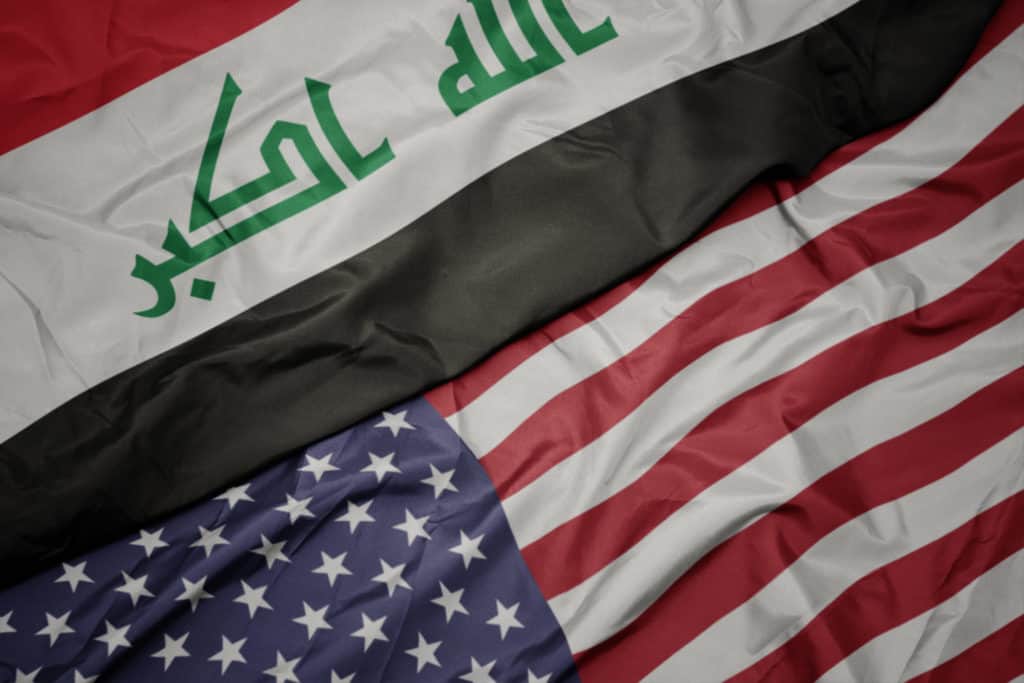Why The Fourth Round of U.S.-Iraq Talks Missed the Mark

waving colorful flag of united states of america and national flag of iraq. macro
Originally published by The National Interest
If the goal of U.S.-Iraq strategic talks is improved relations between the two countries, Iranian influence must be addressed.
The United States and Iraq concluded the fourth series of strategic talks on April 7, emphasizing America’s troop presence in the region and the increasing ability of the Iraqi security forces. The talks, which began last June under the Trump administration, covered a wide range of issues including power, elections, trade, and climate. However, one significant subject was not broached—Iranian-backed militias.
Latest posts by Maya Carlin (see all)
- Iran’s ballistic missiles: How much of a threat are they to Israel? - April 18, 2024
- China’s growing submarine fleet: A threat to the US Navy? - April 15, 2024
- Sinking a US Navy aircraft carrier in combat would be a nightmare - April 12, 2024
